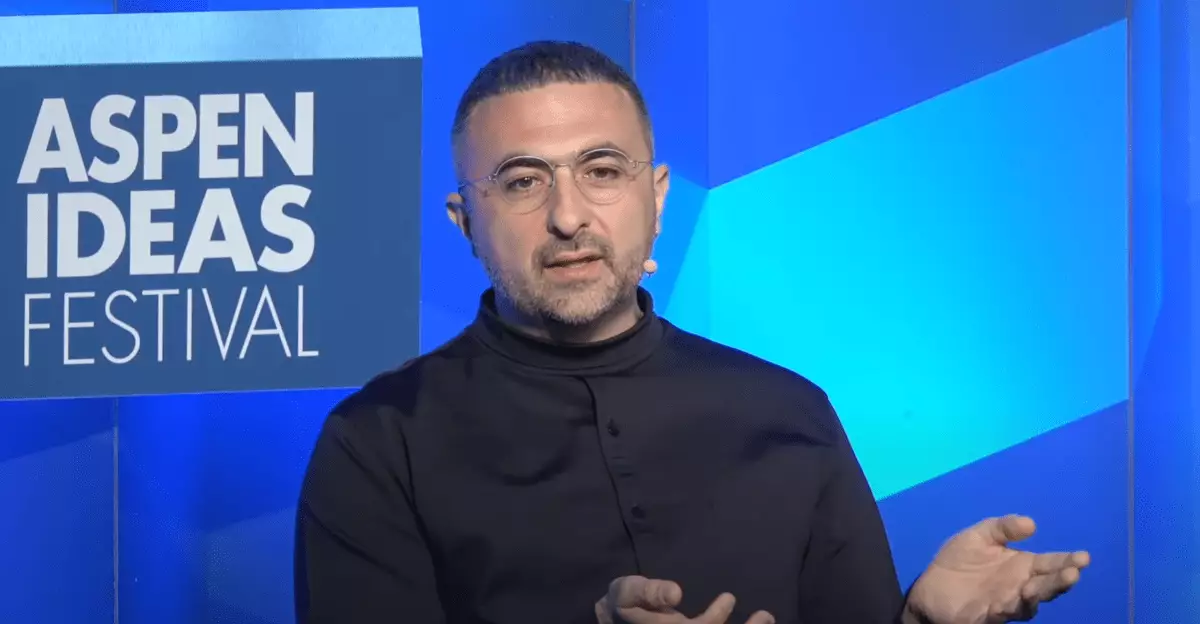The landscape of artificial intelligence (AI) and cloud computing is in constant flux, reflecting the rapid evolution of technology and partnerships among leading firms. Recent events have highlighted the changing relationship between Salesforce, OpenAI, and Microsoft—a situation that suggests a significant realignment in the AI sector. At a high-profile event in Davos, Salesforce CEO Marc Benioff expressed his amusement at the deteriorating ties between Microsoft and OpenAI, a development that could reshape strategies in the tech industry.
OpenAI has traditionally relied on Microsoft as its exclusive cloud service provider, a partnership solidified following Microsoft’s substantial $1 billion investment in 2019. However, shifts in strategy are driving OpenAI to pursue other alliances, including a noteworthy collaboration with SoftBank and Oracle on an ambitious $500 billion data center initiative named Stargate. This development indicates a decisive move away from Microsoft, as OpenAI seeks to diversify its infrastructure capabilities and mitigate risks associated with dependence on a single provider.
Benioff’s humorous commentary about these developments underscores the fears within the tech community that Microsoft’s growing ambition in AI might render OpenAI obsolete. His belief that Microsoft aims to develop its frontier models, potentially sidelining OpenAI’s technology, points to a broader narrative of competition and rivalry that is intensifying within the sector. Observers note that as both companies pursue aggressive AI strategies, the likelihood of collaboration diminishes, and a competitive atmosphere emerges instead.
Evaluating Internal Tensions
The relationship between OpenAI and Microsoft has reportedly been strained for some time, with tensions exacerbated by internal dynamics and leadership shifts. After OpenAI’s CEO Sam Altman was ousted and subsequently reinstated in late 2023, sources indicated that employees from both companies found collaboration to be challenging. Anecdotes of disdain among OpenAI staff toward their Microsoft counterparts suggest deep-seated professional friction, which could jeopardize joint initiatives moving forward.
Such interpersonal challenges are complicated by high-profile appointments at Microsoft. The recent hiring of Mustafa Suleyman, a co-founder of DeepMind and a significant figure in the AI realm, signals Microsoft’s unwavering commitment to advancing its AI capabilities independently of OpenAI. As these companies steer their own courses, Benioff’s commentary hints at the potential fragmentation of AI collaboration that once seemed inevitable.
One of the critical points raised by Altman—who indicates that achieving Artificial General Intelligence (AGI) is a matter of time—correlates with the evolving dynamics in the Microsoft-OpenAI partnership. The original agreement that granted Microsoft exclusive rights over OpenAI’s services carried the stipulation that it would end once AGI was achieved. Should OpenAI continue to invest heavily in its own technological advancements, the dynamics of partnership may shift dramatically, leading to a scenario where OpenAI emerges not just as an AI provider but as a competitor to Microsoft itself.
As both companies explore new ventures and research directions, the implications for the AI marketplace are profound. Microsoft appears to be heavily focused on developing its language model, MAI-1, while also launching new AI initiatives that operate independently from OpenAI. This separation could open opportunities for other companies to leverage OpenAI’s technology, while also promoting competition.
For Salesforce, the upswing in discord between Microsoft and OpenAI offers a strategic opportunity. Benioff’s emphasis on Salesforce’s reliance on OpenAI’s enterprise models, while also positioning the company as an investor in OpenAI rival Anthropic, illustrates a dual approach that could enable Salesforce to capitalize on the volatility in this sector. As AI capabilities expand, companies like Salesforce that can leverage diverse partnerships will likely be better positioned for success.
The tensions between Microsoft and OpenAI reflect broader trends of individualism among tech giants pursuing their AI visions. As alliances shift and rivalries deepen, stakeholders must stay vigilant and adaptable in this rapidly changing environment. The outcomes of these evolving dynamics will likely define the future landscape of artificial intelligence and cloud services in the coming years.

